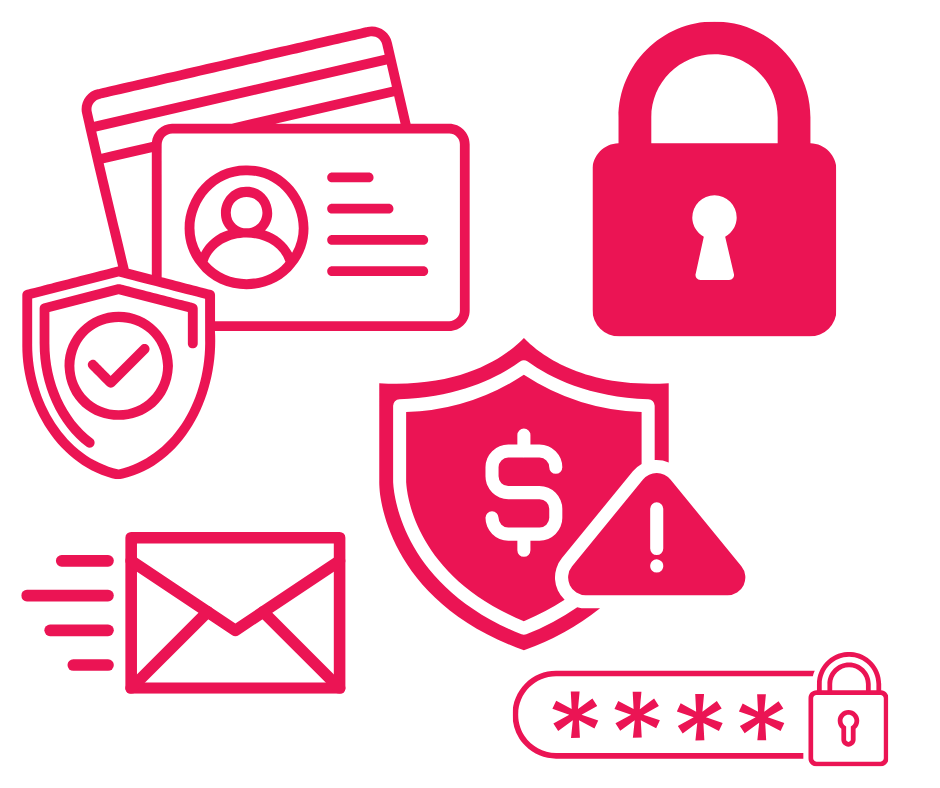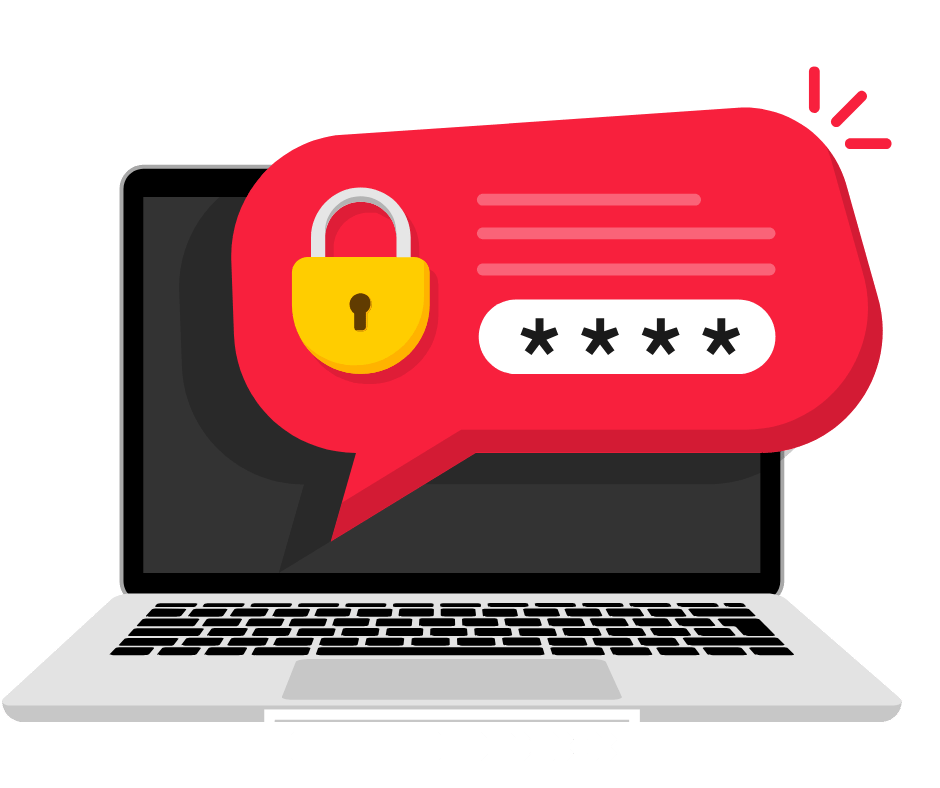Preventing Fraud for Seniors: Essential Tips for Staying Safe
Fraud targeting seniors is a growing concern, with scammers using increasingly sophisticated tactics to exploit older adults. Whether it’s through phone calls, emails, or online schemes, fraudsters are constantly finding new ways to take advantage of vulnerable individuals. This blog focuses on preventing fraud: we’ll help you protect yourself by providing practical tips on how seniors can protect themselves from fraud, including specific advice for Canadian seniors to stay safe and secure.
1. Recognize the Common Types of Fraud Targeting Seniors
The first step to preventing fraud is understanding what to watch out for. Seniors are often targeted by fraudsters through various methods, including:
Preventing fraud by knowing the scams
- Phone Scams: Fraudsters pose as government officials, bank representatives, or family members needing urgent financial help. With artificial intelligence, scammers can now sound just like a family number or loved one – so it is hard to know who you are actually speaking to.
- Online Scams: Phishing emails and fake websites trick seniors into revealing personal information like Social Insurance Numbers (SIN), bank account details, or credit card numbers.
- Investment Scams: Seniors looking to invest their savings are often targeted with “too-good-to-be-true” offers in stock, real estate, or cryptocurrency markets.
- Lottery Scams: Victims are informed they’ve won a prize but must pay fees or taxes upfront to claim it.
- Romance Scams: Fraudsters build fake online relationships with seniors to gain their trust and eventually ask for money.

Being able to recognize these scams is the first line of defense in preventing fraud. If an offer seems too good to be true or if a situation feels suspicious, trust your instincts and verify the legitimacy of the offer.
2. Guard Your Personal Information
Scammers often seek access to personal data, which they can use for identity theft or financial fraud. Here are a few practical tips:
Tips for preventing fraud with your data
- Keep Personal Information Private: Never share sensitive details like your SIN, passwords, or banking information over the phone, through email, or online, unless you are sure the request is legitimate. If they called you and are asking for this data, always be suspicious.
- Shred Important Documents: Always shred documents that contain your personal information, such as old bank statements, credit card offers, or medical records.
- Be Wary of Unsolicited Emails and Calls: Fraudsters often contact seniors through unsolicited emails or phone calls. Be cautious if you didn’t initiate the contact, and don’t provide personal information unless you can verify the identity of the caller or sender.
- Ask clarifying questions: even if you think you know the person, ask questions to double check! Remember, their voice may have been cloned by artificial intelligence.
.

3. Know Your Rights in Canada
Canadian seniors have specific rights that protect them from fraud and financial abuse:
- The Financial Consumer Agency of Canada (FCAC): The FCAC provides resources to help Canadians understand their rights as consumers. If you feel you’ve been a victim of a scam, the FCAC can offer guidance on how to file a complaint.
- Canadian Anti-Fraud Centre (CAFC): The CAFC is a valuable resource for reporting fraud in Canada. They track and investigate scams affecting Canadians and provide tips on how to avoid them.
- Consumer Protection Laws: Canada’s consumer protection laws make it illegal for businesses or individuals to mislead or deceive consumers. If you believe you’ve been the victim of a scam, Canadian law provides several avenues for recourse.

It’s important for seniors to familiarize themselves with these protections and understand where to report fraud. The Canadian Anti-Fraud Centre (1-888-495-8501) is an excellent place to start if you’ve fallen victim to a scam.
4. Use Technology Safely
While the internet can be a great way for seniors to connect with family and friends or manage finances, it also poses risks. Here are some tips for staying safe online:
Tips for preventing fraud online
- Strong Passwords: I know they can be hard to remember, but use complex passwords for all online accounts, and never share your passwords with anyone. You can use phrases to make it easier for you to remember.
- Enable Two-Factor Authentication: Wherever possible, use two-factor authentication (2FA) to add an extra layer of security to your accounts, especially for online banking or email. This way you get a phone call or email as a confirmation that you really want to make that transaction, preventing fraud if they only gain access to one level of security.
- Secure Wi-Fi Networks: Always use a secure Wi-Fi connection at home, and avoid using public Wi-Fi for sensitive tasks like online banking or shopping.
- Be Skeptical of Unknown Links: Never click on suspicious links in emails, texts, or social media messages, as they may lead to phishing websites designed to steal your personal information.
.

5. Verify Offers Before Acting
Scammers often prey on seniors’ desires to help their loved ones or make quick financial gains. Before committing to any offer, investment, or donation, always verify the legitimacy of the source. Here’s how to do that:
- Research the Company or Organization: If you receive an unsolicited call or email offering an investment, prize, or donation request, look up the organization online or call them directly to confirm their legitimacy. Never do anything on that first call – hang up and check the information first. Ask a trusted family member or friend for advice.
- Check for Red Flags: High-pressure tactics, requests for immediate action, or a sense of urgency are common tactics used by scammers. Be wary of any situation that seems to require you to act quickly. If it sounds too good to be true, it probably is.

In Canada, reputable charities and organizations will often be registered with the Canada Revenue Agency (CRA), so checking their status can help you avoid fraudulent donation requests.
6. Use Trusted Services and Professionals
As a senior, it’s important to use trusted professionals for financial advice and services. If you need help with your finances, ensure that the person you’re dealing with is licensed or regulated by a recognized body. In Canada, financial advisors must be registered with organizations like CIRO (Canadian Investment Regulatory Organization)
Additionally, be cautious about allowing anyone into your home or personal life who may attempt to exploit your trust. Always perform a background check on any individual who offers services, whether that’s for home repairs, financial advice, or health services. This is one of the reasons it can be safer to hire a home care agency rather than a private PSW.
7. Stay Informed and Ask for Help
Knowledge is power when it comes to preventing fraud. Regularly update yourself on the latest scams, and encourage family members or trusted friends to do the same. Seniors should feel comfortable reaching out to loved ones if they receive suspicious offers or feel unsure about a particular situation.
You can also participate in community programs or workshops focused on fraud prevention. Many Canadian communities offer free seminars or resources specifically designed to help seniors recognize and avoid fraud.
Conclusion: Preventing Fraud is Possible
Fraud is a serious issue, but with the right precautions, seniors can safeguard themselves from falling victim to scams. Stay alert, protect your personal information, and always take the time to verify offers before acting. By staying informed and vigilant, you can continue to enjoy your golden years without the worry of fraud. For further tips, watch our webinar on preventing fraud that we did a few years ago with More Than Enough, Financial Fitness Ottawa
If you or someone you know is struggling with fraud or needs assistance, don’t hesitate to reach out to local authorities or community organizations for support. Protecting yourself from fraud starts with awareness and action!
